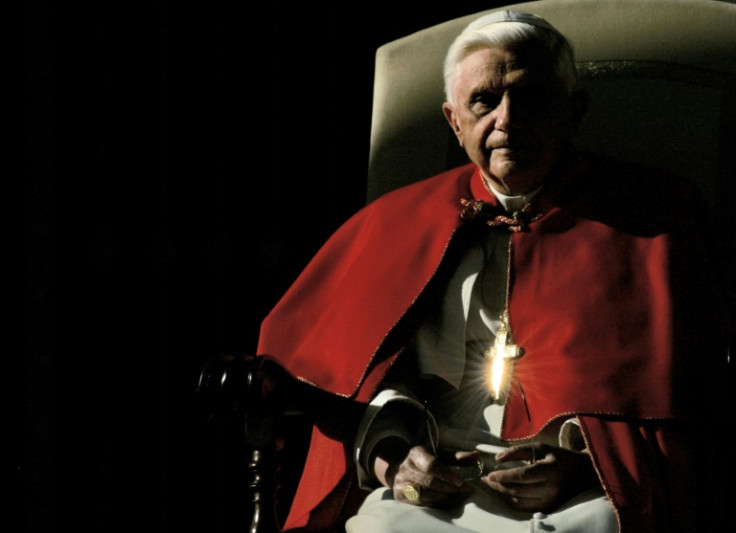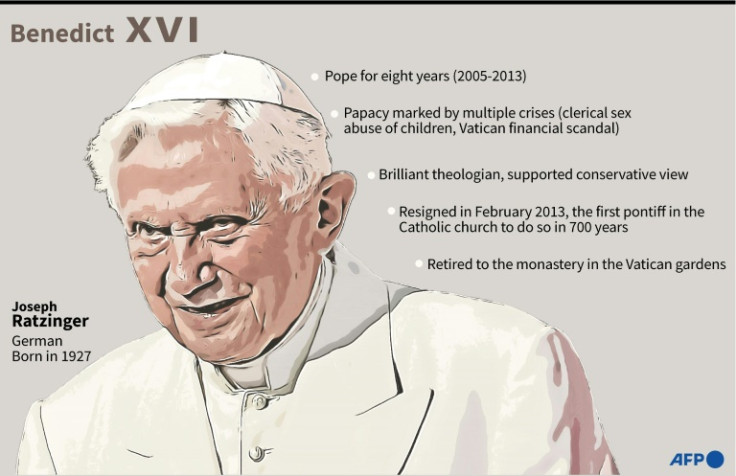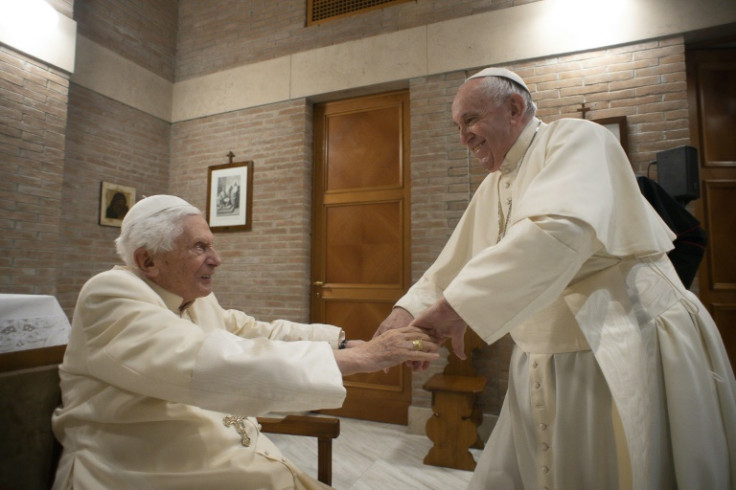Ex-pope Benedict's health serious but stable: media
Former pope Benedict XVI remains in a serious but stable condition, Italian media reported Thursday, the day after the Vatican revealed the 95-year-old's health had deteriorated.

Former pope Benedict XVI remains in a serious but stable condition, Italian media reported Thursday, the day after the Vatican revealed the 95-year-old's health had deteriorated.
"His situation has not changed from yesterday," an unnamed source in contact with those around the German ex-pontiff told ANSA news agency, adding that doctors were continually monitoring him.
Contacted by AFP, the Vatican neither confirmed nor denied the report.
Benedict, who in 2013 became the first pope since the Middle Ages to resign as head of the worldwide Catholic Church, has been in fragile health for many years and uses a wheelchair.
But Pope Francis sparked alarm on Wednesday by revealing at his general audience that his predecessor, whose birth name is Joseph Ratzinger, was "very ill".
He called for people to pray for him, before going to visit Benedict at the Mater Ecclesiae monastery in the Vatican grounds where he lives.
The Vatican later confirmed the ex-pope's health had worsened "due to advancing age", while a Vatican source told AFP Wednesday that it began deteriorating "about three days ago".
"It is his vital functions that are failing, including his heart," the source said, adding that no hospitalisation was planned, as he has the "necessary medical equipment" at home.
In response to the news, Catholic leaders from around the world said they would pray for him, from the United States to Benedict's native Germany.
The Vatican also announced a special mass to be held on Friday at Rome's Basilica of St John Lateran.
In 2013, Benedict had cited his declining physical and mental health in his shock decision to stand down.
His resignation created an unprecedented situation in which two "men in white" -- Benedict and Pope Francis -- have co-existed within the walls of the tiny city state.
Benedict was 78 when he succeeded the long-reigning and popular John Paul II in April 2005.
He had previously served as the Church's chief doctrinal enforcer, earning the nickname "God's Rottweiler" and a reputation as a generally conservative thinker on theological issues.
But his papacy was beset by Church infighting and the outcry over clerical sex abuse of children.
He became the first pontiff to apologise for the abuse that emerged around the world, expressing "deep remorse" and meeting with victims in person.
But while he took key steps to tackle the scandal, Benedict was criticised for failing to end Church cover-ups, and the issue returned to haunt him in retirement.
A damning report for the German church in January 2022 accused him of personally having failed to stop four predatory priests in the 1980s while archbishop of Munich.
Benedict has denied wrongdoing, but in a letter released after the report, asked "for forgiveness".
"I have had great responsibilities in the Catholic Church. All the greater is my pain for the abuses and the errors that occurred in those different places during the time of my mandate," he wrote.
Biographer Peter Seewald told AFP in June 2020 that Benedict is a "down-to-earth person... found in the highest circles while remaining a very humble person, a warm person".
But he failed to stamp his authority on the Curia, the Church's governing body, and also appeared to have lost control of his household.
In 2012, his butler Paolo Gabriele leaked secret papers to the media, an act of betrayal which profoundly saddened the pontiff.
His papacy was also marred by a money-laundering scandal at the Vatican bank, which exposed infighting among Benedict's closest allies.


© Copyright AFP 2025. All rights reserved.





















